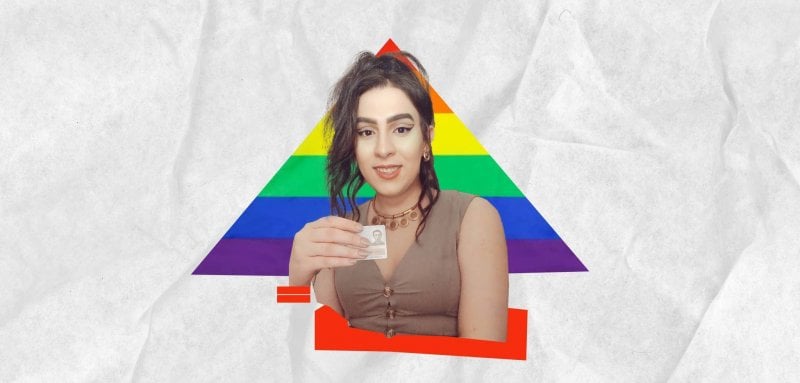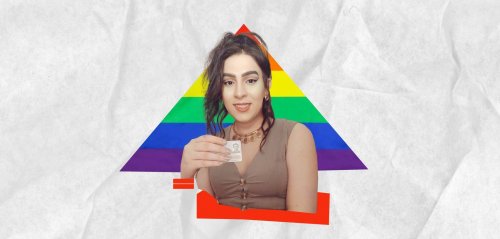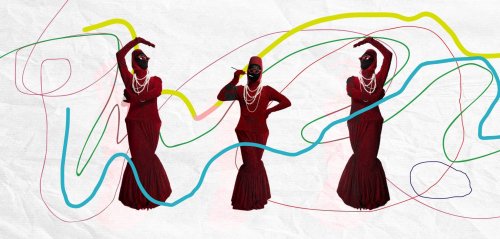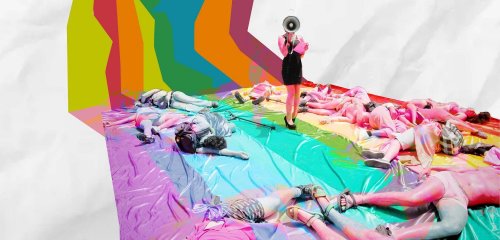Colored Stories: A space to share the vibrant stories of members of the LGBTQ+ community. These are stories of people who have overcome challenges, shattered taboos, and left a strong mark in the public sphere or in their chosen profession. Through their perseverance and effort, they have proven that success is not limited to sexual and gender identity, and that dreams are accessible to everyone without exception.
“Malak today is everything I dreamed of being since childhood,” Malak Al-Kashif tells Raseef22, “I fulfilled many wishes and dreams, like standing in front of the mirror and seeing myself in a woman’s body; when I was young, I would stand in a boy’s body, imagining my feminine form and wishing it were real. I have managed to substantiate my existence and assert my gender identity.”
She speaks with pride that she has broken into the world of publishing and writing, “My voice became heard, and my cause spread beyond Egypt.”
Malak Al-Kashif is a beacon of strength, she has drawn her features and colors, and built herself up on her own. As a transgender woman, she has contributed significantly to trans rights advocacy and gender diversity in Egypt, even before becoming Executive Director of Transat, which was founded in 2017. Al-Kashif aims to be “a reference in Arabic on transgender issues and gender diversity.” In addition to advocating for transgender rights, she remains committed to empowering the trans community culturally and intellectually.
In rising above the narrow and conservative society she came from, in order to live authentically, Al-Kashif became a symbol of courage and confrontation, defending the trans community and their rights without surrender, retreat, or fear. She has been relentless, despite hurdles and hardships on her journey, which, according to her, “was worth everything I did.”
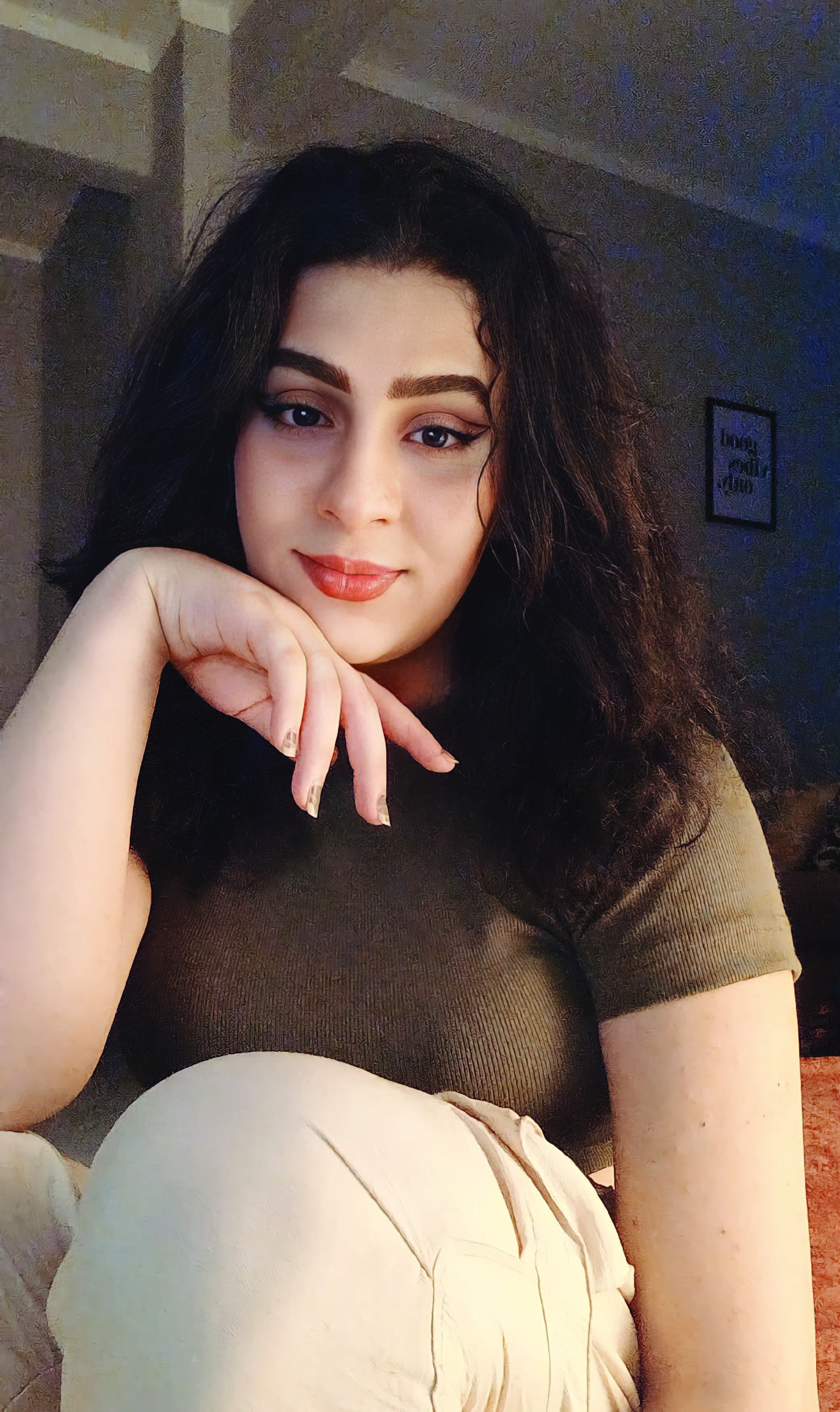 A personal photo of 'Malak Al-Kashef'
A personal photo of 'Malak Al-Kashef'
Who is Malak Al-Kashif ?
Born in 1999, Malak Al-Kashif spent the first seven years of her life in Abha, Saudi Arabia, a sleepy city where everything shuts down as the sun sets.
Much of her childhood is a blur, as the trauma and pain she experienced have burned holes in her memory. In 2007, Al-Kashif, along with her family, moved to Egypt, marking the start of a pivotal chapter in her life.
“I fulfilled many wishes, like standing in front of the mirror and seeing myself in a woman’s body; when I was young, I would stand in a boy’s body, imagining my feminine form and wishing it were real. I have managed to substantiate my existence and assert my gender identity.”
At around eight years old, she began to recognize gender dynamics, and a year later, she opened up to her mother about her own gender identity. She describes that painful and unforgettable day vividly, “One day, in 2008, I told my mother that I was a girl in a boy’s body. She told me, ‘Go to your room,’ and did not show any anger in her expression. But after my father returned home from work, she told him what had happened, and he beat me badly.” This scene is ingrained in her memory of childhood, “It was the first time I saw that side of my father.” Despite this, Al-Kashif knew how to turn her pain into an opportunity for change.
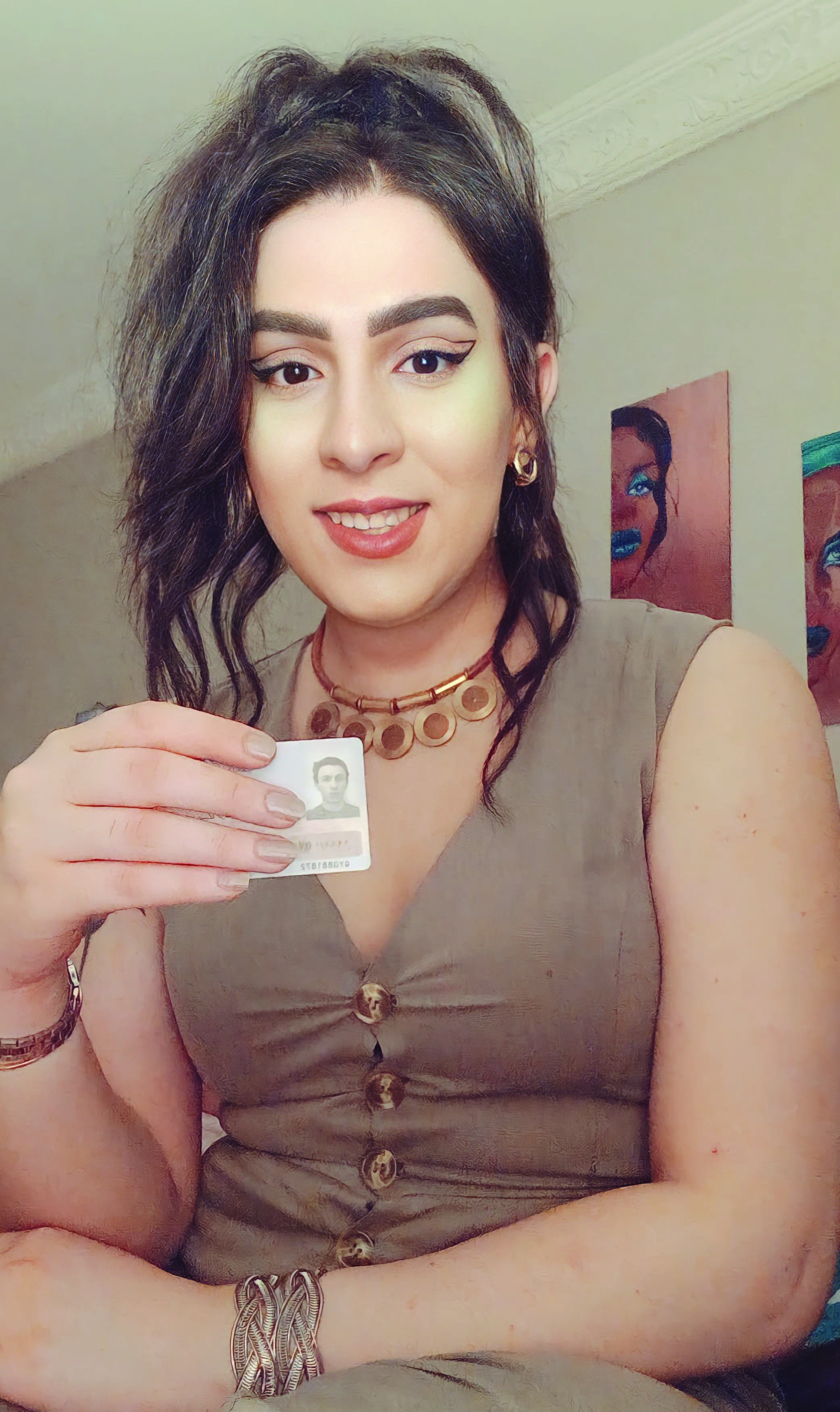 A personal photo of 'Malak Al-Kashef'
A personal photo of 'Malak Al-Kashef'
An endless series of violations
Despite being violated and having suffered many times throughout her life, Malak Al-Kashif has remained hopeful. Her nuclear and extended family, as well as the community and society she grew up in, cruelly rejected her. “They used to say I behaved in a soft and feminine way, and my traits were unsuitable for a man,” adding, “They used to avoid me and wouldn't allow their children to sit or play with me.”
Despite the hardship, she praises her ability to establish her identity as a woman despite being in a men’s prison, “From the first day, I didn't submit to prison rules. I forced them not to shave my hair, the only evidence of my identity. ”
According to Al-Kashif, her family’s reaction was not as painful as that of society and of the young men and women of her city, “The family contented themselves with rejecting and excluding me to keep me lonely and to 'man up', however, society hurled various forms of violence at me.”
Due to her appearance, Al-Kashif was bullied, assaulted, and subjected to violence, which made her afraid to leave home. There were days when she refused to go to school out of fear of being beaten. She always felt trapped among people who were stronger than her, “To this day, I don't know how my mind managed to survive the extent of the violence, and how it created a space to exist.”
At eleven years old, her family began dangerous attempts to reshape her, forcing her to attend therapy, and despite her young age, forcing her to enter a psychiatric facility on two occasions. Al-Kashif did not give up on her quest to live authentically, “I have lived more than once, and in many forms, and I have died many times too.”
Between the ages of thirteen to sixteen, Al-Kashif ran away, and returned to, from her family home multiple times, sleeping on the streets despite suffering from asthma. Eventually, she left home permanently and sought shelter in shared housing.
At that point, the journey became “exciting and intriguing […] I felt my strength and power for the first time. I became bolder and felt as though I had accomplished something great by remaining alive and strong despite the madness all around me.”
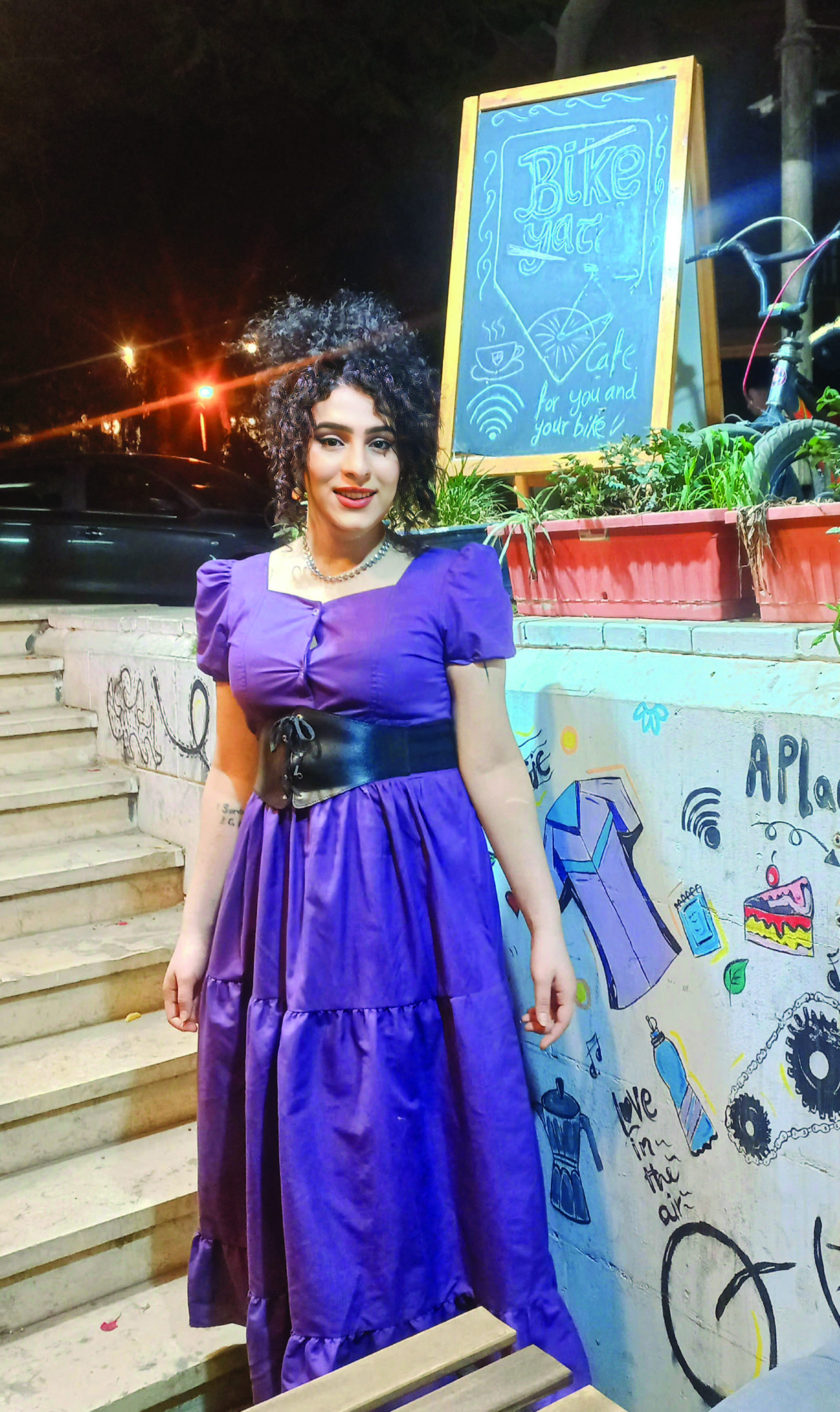 A personal photo of 'Malak Al-Kashef'
A personal photo of 'Malak Al-Kashef'
Multiple imprisonments and solitary confinement
Malak Al-Kashif described her prison experience as “extremely private,” adding, “Although I was imprisoned three times, the last time was the longest and the hardest.”
Al-Kashif was arrested twice in 2014 and 2017 due to her unconventional appearance. On both occasions, she was placed in the men’s detention and solitary confinement, only to be released a few days later.
In 2019, she was arrested for a third time, which according to her "was marked by violence from the moment of my arrest from my family's home on March 6.” Al-Kashif explains, “I was detained for two days, blindfolded in the National Security headquarters for combating terrorism and threats to national security, as I had participated in a local protest. Our demands were met, but only after the participants were arrested.”
When brought before the prosecution, she was interrogated for about seven or eight hours, charged with “participating in the objectives of a terrorist group, misusing social media, and threatening public order.” She entered the men's prison and spent four months in solitary confinement. “Throughout my time in prison, I didn't see the sun, I didn't leave my cell, and I had no one to talk to.”
Despite the hardship, she cracks a smile, and praises her strength and ability to establish her identity as a woman despite being in a men’s prison. “From the first day, I didn't submit to prison rules. I forced them not to shave my hair, the only evidence of my identity. The prison administration wrote on my cell: Abdul Rahman Mohammed – a transgender, also known as Malak al-Kashif. I felt proud, and I liked the idea of putting both names officially together.”
During the investigation, the prosecutor addressed her as Malak, not Abdul Rahman, and wrote in her file that she is a transgender person, “I consider this a great success story for me; imposing my identity on them and the pronoun I want to be addressed with is an achievement.”
Coming out into freedom: hope and challenges
Al-Kashif was released on July 15, 2019, carrying even greater determination to fight for the rights of trans men and women, and to demand safe places of detention for them. Currently in Egypt, there are only two options for members of the trans community facing prison time: transgender women are either imprisoned in men's prisons, and transgender men in women's prisons, or they are held in solitary confinement.
Dissatisfied with this injustice, Al-Kashif decided to challenge this system, filing a lawsuit against the Minister of Interior, in collaboration with the Egyptian Commission for Rights and Freedoms (ECRF), to demand the allocation of safe detention places for transgender individuals. After two years of exhausting and lengthy sessions, the lawsuit was rejected.
But nothing dampens the resolve of this young woman who continued to overcome challenges with determination, especially since she was not alone. With a warm smile across her face, Malak shares, “The support of my chosen family is what helped me the most on my journey of recovery.”
She adds, “Therapy, which I have been in since 2018, has also helped me overcome the pain of the experience. I took some medication that helped my condition, but it wasn't easy.”
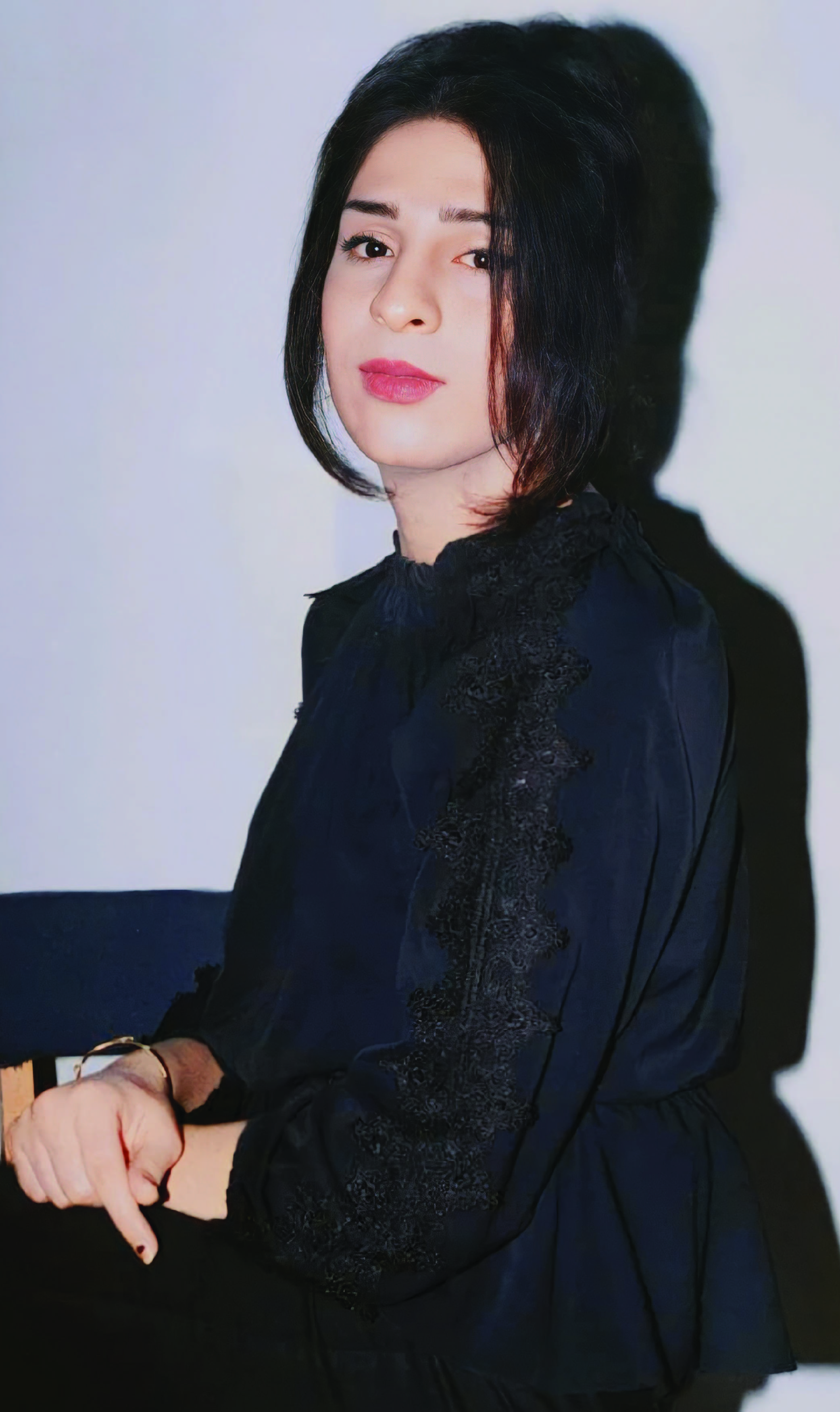 A personal photo of 'Malak Al-Kashef'
A personal photo of 'Malak Al-Kashef'
Al-Kashif is keen to point out that “the Transat Foundation also saved me. I don't know how I would have lived after prison if they hadn't given me the opportunity to join its team. It was a lifeline for me in the most difficult times.”
Al-Kashif received the Courage Award for the LGBTQ+ community in 2022 from Queer Allies Caucus of Sexual and Gender Minorities (LGBTQA) in the International Studies Association (ISA) on the occasion of the International Transgender Day of Visibility, which falls on March 31. She considers it a victory for all queer people, “I felt that my story went further than I ever hoped for. I have been striving since childhood to make my voice heard in my country, and today it has crossed borders.”
Al-Kashif has been relentless in defending the trans community and their rights without surrender, retreat, or fear, despite hurdles and hardships on her journey, which, according to her, “was worth everything.”
Al-Kashif’s struggles began at a young age, and she overcame challenges and pain, refusing to let anything hinder her ambitions. Instead, all the adversity fueled her inner strength and pushed her to look to the future through the eyes of a strong woman.
It is not easy to summarize the details of Al-Kashif’s life – the violations, the successes, and the journey as a whole. Her ability to turn challenge and adversity into an opportunity for authenticity and success is commendable. Al-Kashif has succeeded in transforming violence into willpower and strength.
She concludes, “I am happy because I was among the generation that started to give the government these headaches and put pressure on them.”
Raseef22 is a not for profit entity. Our focus is on quality journalism. Every contribution to the NasRaseef membership goes directly towards journalism production. We stand independent, not accepting corporate sponsorships, sponsored content or political funding.
Support our mission to keep Raseef22 available to all readers by clicking here!
Interested in writing with us? Check our pitch process here!
